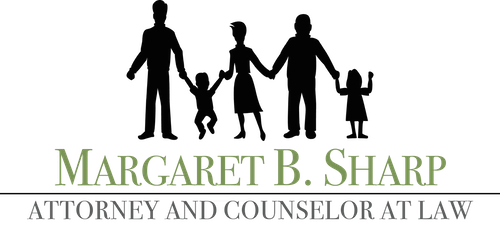LIMITED SCOPE REPRESENTATION
FULL SERVICE REPRESENTATION
NEWSLETTER SIGN UP
NEWSLETTER SIGN UP
Children and Parents…The Sandwich Generation
It is well known that children are minors until they reach age eighteen (18). Until that time, the child has no legal ability to hold money or property. If a minor child is named as a beneficiary of a life insurance policy, or if there is a custodial account established for the benefit of the minor child, there are some problems that may arise that can be avoided if proper action is taken:
PROBLEM: Minor Child is Beneficiary of a Life Insurance Policy
If a minor is the designated beneficiary of a life insurance policy, and if the insured dies before the minor’s eighteenth birthday, the life insurance proceeds will not be paid out until the parent or guardian of the minor has been appointed by a court as the minor’s legal guardian.
This problem may be avoided if the parents of the minor establish a trust for the minor’s benefit and then designate the trust as the beneficiary of the life insurance proceeds. The insurance company can pay directly to Trustee of such a trust.
PROBLEM: Custodial Accounts for Minors
Many parents and grandparents establish custodial accounts in financial institutions pursuant to the provisions of the California Uniform Transfers to Minors Act (CUTMA) which is codified in the California Probate Code beginning at Section 3900. The problem arises when the named custodian becomes incapacitated, resigns, or dies before the minor reaches age fourteen (14).
Unless a substitute or successor custodian has already been nominated, the financial institution will require a successor custodian to be appointed by court order before anyone else can access or manage the custodial accounts.
This problem can be avoided by designating one ore more successor custodian(s) as set forth in the California Probate Code. This can be done at the time the custodial account is open, or at a later date by the current custodian provided that the procedure set forth in the Probate Code is followed.
Note that if the minor child is age fourteen (14) or older, the minor child may designate, in writing, a successor custodian under certain circumstances.
CARING FOR ELDERS
Aging is a process that is difficult not only for the parent, but for the child, who may either be providing the care for the elder or arranging for someone else to do so. There are several issues which should be addressed in the caring of our elders. Your estate planning attorney can help you address most of these issues.
Medical Issues : Does the elder have in place a valid Advance Directive for Health Care, naming designated health care agents and providing information about the kinds of medical treatment the elder does or does not want to have. Is the agent local or out of state? Are the agent’s address and telephone number up to date? In California, the Advance Directive for Health Care also provides for legal authority regarding the disposition of the elder’s remains in the event of death.
Financial Issues : Who has access to the elder’ financial accounts in the event the elder becomes incapacitated? This may depend on whether or not the elder has established and funded a revocable living trust. If there is a living trust, the successor Trustee steps into the elder’s shoes in managing the elder’s affairs in the event of the elder’s incapacity.
If the elder does not have a living trust funded with the elder’s financial accounts, does the elder have a Durable Power of Attorney for Finances?
Note that in California, there must be separate powers of attorney for health care and for finances. One type of power of attorney does not provide authority for the other type.
Also note that powers of attorney may be either effective immediately or springing. Springing powers of attorney require certification by one or more physicians of the principal’s incapacity before becoming effective.
Legal Issues : Does the elder have in place a valid Will or living trust which provides for the disposition of the elder=s assets upon death?
Care/Aging Resources : Here is a list of organizations which may provide useful information on issues involving aging or elder care:
U.S. Administration on Aging: www.aoa.gov
National Alliance for Caregiving: www.caregiving.org
Eldercare locator: http://www.eldercare.gov
National Association of Area Agencies on Aging: www.n4a.org
The post Children and Parents…The Sandwich Generation appeared first on Sharp Estate Planning.

